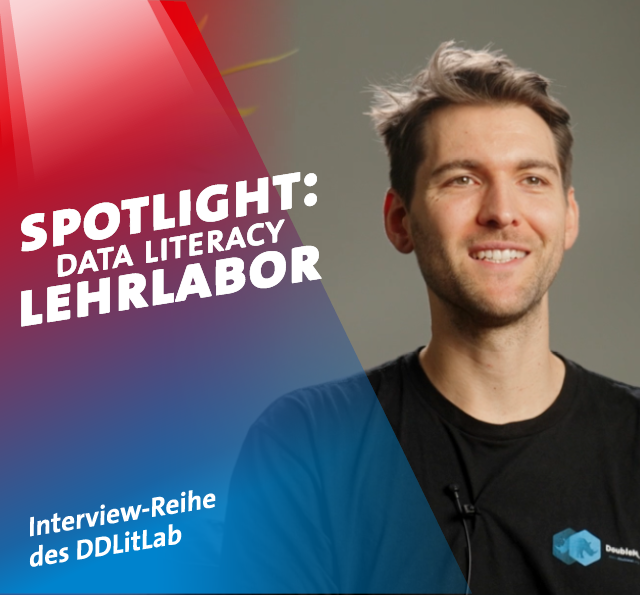Opening the "Digital Causality Lab" - Causal Inference for All!
- Course type: Massive Open Online Course
- Institution: Faculty of Business Administration
- Funding period: 01.04.2023 to 31.03.2024
- Short title: Causal inference for all!
Extract from the funding application: "A sound knowledge of causality across the breadth of society serves to strengthen and future-proof democracy, as many decisions can only be understood in a well-founded manner, critically examined and important considerations made in this way."
The Digital Causality Lab

The aim of the project was to teach data literacy skills using the topic of causality. The ability to process data, carry out data- and code-intensive projects and generate knowledge with the help of data are elementary not only in the academic world, but also in the professional world. As the Chair of Statistics, it is particularly important for us to create attractive learning opportunities in quantitative and empirical subjects. Following the successful completion of the first, subject-specific funding phase, the project has now been opened up to a wider audience as part of the Studium Generale programme and interest in data and its (causal) analysis has been aroused.

Bach / UHH
Review and results

A modern and attractive course in Causal Inference was created using the latest textbooks, innovative materials (lecture slides, learning apps, notebooks) and high-quality teaching videos. A MOOC will be offered from SoSe 2024 in the "Studium Generale" and in the new Liberal Arts degree programme.
The course is firmly anchored in the "Statistics and Data Science" elective area of the B.Sc. in Business Administration and will be opened up to other degree programmes in the long term. Causal inference serves as a methodological cross-cutting topic for interdisciplinary teaching by using subject-specific expertise to assess causal relationships. This strengthens interdisciplinary teaching at the University of Hamburg in the long term.
The course promotes data literacy and covers topics from statistics, computer science, social sciences, humanities and medicine, among others. The digital MOOC is also offered as a hybrid, and the exercise as an interactive lab teaches practical data literacy skills - programming in R, statistical basics, estimation of causal effects, version control with Git/GitHub as well as management of data-intensive projects, case studies and data products. Students gain practical insights and apply their skills in independent case studies.
Tips from lecturers for lecturers

The project's teaching materials rely on numerous case studies on the one hand and on a multi-layered presentation of the concepts on the other: an attempt is made to convey the intuition and then refer to the formal, mathematical. Students should be made curious about how to draw causal conclusions from data in order to provide a framework used in research and industrial practice. The end result of the teaching project is a versatile and varied teaching programme consisting of lecture slides and videos on the one hand and interactive elements such as quizzes and interactive learning apps on the other.
Another added value of the teaching project for lecturers relates to research-based learning. This independent learning approach has already been successfully implemented as part of the exercise (already in the first funding phase). Many students have carried out and presented convincing projects. Important experience has also been gained with regard to the challenge of engaging all students. This semester, for example, a stronger structure was introduced, particularly at the beginning of the course. Finally, of course, the experience of implementing professional digital teaching in the course of producing a MOOC should be mentioned.
Persons involved
Faculty of Business Administration
Applicants: Dr Philipp Bach, Prof Dr Martin Spindler
Funding line: Data literacy in the Studium Generale programme
Funding period: 01.04.2023 - 31.03.2024



